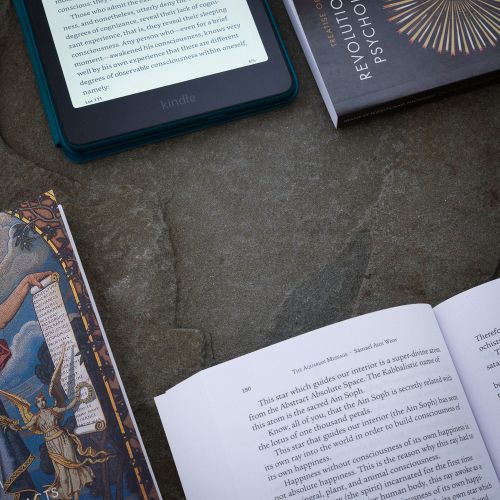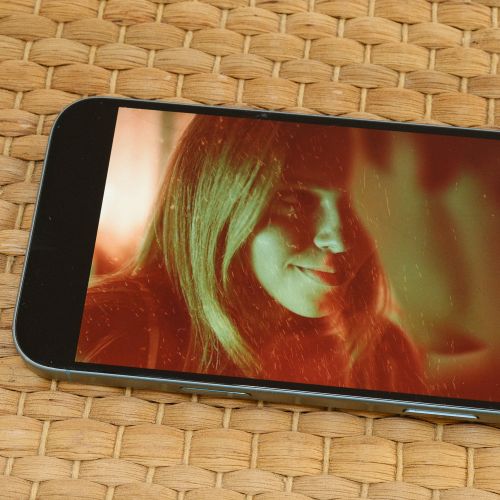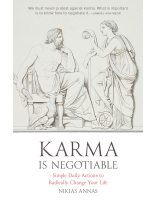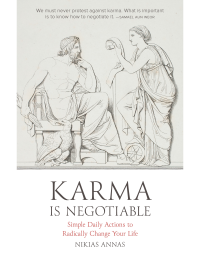The first, most important way for us to act for the benefit of self and others is to stop performing harmful actions. That means harmful actions towards ourselves or other people.
To understand what harmful actions are, we have to study the teachings; we have to study our religion. You can start by studying any religion to grasp this concept. This is the fundamental basis of any religion. It is the level where we learn ethics—what we should do, what we should not do. In general, the steps are pretty simple: do not kill, do not steal, do not lie, do not abuse your sexual energy, eliminate pride, eliminate anger, stop your selfishness. In general, it is to treat others as we would be treated. Of course, we all “know” this, but we do not do it, especially inside, in our minds and hearts.
In the western traditions are the Ten Commandments and other guides to a higher way of behaving. In the eastern traditions are the Vinaya, Pratimoksha, and many more presentations of ethics. There are many lists and analyses of the different actions that are harmful or beneficial. You can study any of those, and they will all help.
Most importantly, you have to study your heart. The truest guide for action is our own conscience. But to be guided by it, we have to learn to hear it.
We all have our own idiosyncrasies. We all have qualities that we think are virtues, that we think are our good qualities, which are actually completely egotistical, and no book is going to teach you that. You will only see that in yourself, in action, in your daily life. If you take this teaching seriously, you will see it, you will learn about it, because your Innermost Divine will show you.
The Innermost is our connection to the Divine. The Innermost is our Real Being. Our Being is divine, pure, eternal. It is our Spirit. It is not the Soul. It is not the mind or consciousness. The Innermost is our Inner Buddha or Angel, who waits to instruct us.
Whether we are spiritual or not, we experience situations in life that are painful, that are hard, partly because we created the conditions for them to arise, and also because our Innermost is putting us there to teach us about ourselves. When a puppy dog releases its wastes in the wrong place, in order to teach it we put its nose there and say, “Don’t go here.” Our Innermost Being does that with us, too. Our Innermost puts us into situations that we made, and says, “You made this mess. Do not do that. See how unpleasant it is? See how painful it is?” But we always curse God for our circumstances. We blame everything on others. We are unwilling to see ourselves. So we always say to ourselves, “Why is this always happening to me? Why do I have to suffer? Why these problems?” We do not realize that we made our life through our actions. We do not want to see our own culpability.
To be a serious spiritual practitioner, that is the first thing you look for in any situation: “How did I make this? How did I get myself in this position? What in me is suffering?” That is the best question of all. Instead of looking outside—”He is making me suffer; work is making me suffer; my wife is making me suffer”—look back at yourself and say, “What in me is suffering?” Because really, it is not your spouse that is making you suffer. It is your anger that is making you suffer; it is your pride that is making you suffer. If you did not have that pride, if you did not have that anger, their words would not have meant anything; they would not have affected you. Their actions would not have bothered you. But because you have pride and envy and anger, you get bothered a lot.
We have to stop harmful action, to restrain ourselves from any act of negativity. This alone can take many, many years. I know a lot of people like to think as soon as they enter into a religion and they read the list of commandments or vows, “Number one, two, three, four, five. Okay. I can do all these. I don’t drink. I don’t smoke. I don’t sleep around. So I must be on my way to heaven.” It does not work like that. Even though you may not be doing something physically, you are probably doing it in your mind. That is the hardest part. Jesus said,
“Even if you look at a woman with lust, you have committed adultery.”
In the state we are in, we constantly perform harmful actions in our body, feelings, and thoughts. In other words, we produce causes that create harmful effects, continually, because our desires are acting in us. So as part of this accurate analysis, we have to continually watch our behaviors and stop ourselves from doing harmful things, not just physically, but in the mind, in the heart, through our words, through our thoughts. This requires continual observation.
Self-observation is absolutely essential, critical—not just for a few minutes, but all the time. Never stop paying attention to your psychology. Do not get sucked into daydreaming, into being distracted by the outside world, by fantasizing on the inside world. Watch your mind, because at any instant, something in you is contemplating a harmful desire.
Samael Aun Weor said that ninety-seven percent of our thoughts are harmful and negative. If we are honest, how much do we really watch our mind during the day? Very little. What about all those other thoughts and feelings that have been surging throughout the day that we did not pay attention to? Those are all streams of energy that are creating effects. That should scare us into acting. That should be of great concern to us.
The instant we realize we have lost mindfulness of our actions, we should feel as if we have just discovered a serpent in our lap. We should be that astonished. Because truly, to lose attention is a life or death matter. When we cease paying attention, when we lose our cognizant awareness of the moment, we slip into sleep, and then all those psychological stimuli that are processing in our subconscious, unconscious, and infraconscious levels are creating effects. That is why life is getting more complicated and painful. That is why our society is declining: because nobody is paying attention to themselves.
Instead of being cognizant of ourselves, we act mechanically, we react and respond automatically, without consciousness of how or why. We are always dreaming about what someone meant, and what they “really” said. We project all kinds of interpretations of our daily lives. “When he looked at me like that, he must have felt that I was doing something bad.” “When he looked at me like that, he must have been lusting after me, so maybe he likes me.” We project so much garbage, continually, replaying events and scenes in our minds, trying to interpret them, trying to analyze them, trying to change them. It is all garbage, and we let it happen, and it has consequences. That is why we are asleep. To awaken is to watch that, to stop that, to be here and now, to be in conscious dominion of our kingdom, to control our mind, to be awake. That is the prerequisite. We have to stop harmful action, not just physically, but psychologically.
In many religions, this step is symbolized by death, such as in the beheading of John, or the martyrdom of the saints. Our desires must die in order for our true potential to be born. If the seed does not die, the tree cannot be born. Yet, if the harmful action is restrained, then a beneficial action can emerge. A beneficial action—whether inside or outside—has incredible power.
Commit not a single unwholesome action,
cultivate a wealth of virtue,
tame this mind of ours;
this is the teaching of all the buddhas.
—Dudjom Rinpoche, The Concentrated Essence







